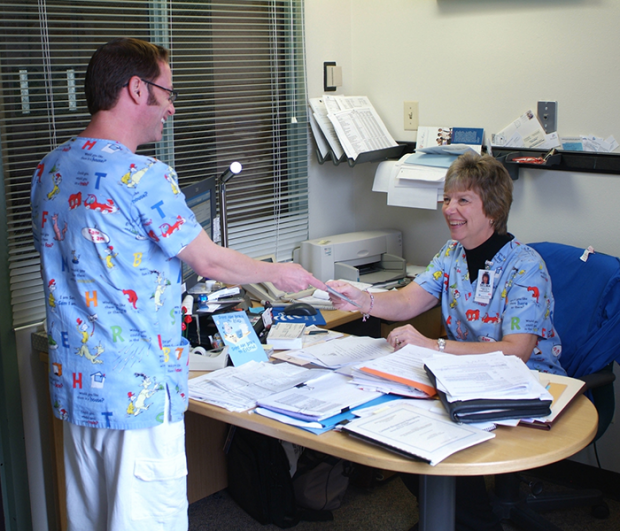It's that time of year again—annual performance evaluation time. I've completed many performance evaluation meetings as a leader, and I understand the trepidation many team members have during this time. Some have had really bad experiences with performance appraisals. Some do not understand the true, professional purpose of the event. Many think it is just one more thing to do after completing loads of competencies and system requirements. A few write off the process all together because no one is getting pay increases this year anyway.
Essentially, performance evaluations are a time to celebrate the work of team members, to provide honest and constructive feedback in perspective of the expectations set at the beginning of the year, and to refocus for the upcoming year of work. At least, that's what I hope for associates, although I do realize that isn't always the case. Still, you have the opportunity to shake up your evaluation and make it stellar. Here's how.
1. Toot your own horn. Now is the time to show that you shine. Tell your evaluator (and his boss and her boss) why you're amazing and all the work you have been a part of this year. Imagine you are re-interviewing for your job, competing with the cream of the crop for the role. Reach back into the recesses of your busy mind and really think about all of the small projects you have been a part of or the initiatives you helped lead or the people you helped orient. Write. It. Down. Your manager will be thankful you specified your work and will be likely to use some of your examples in her appraisal writing. If you need time to think about your work, complete your self-appraisal in increments; you will most definitely think of different examples of work throughout the year over the course of a few days as opposed to a single 15-minute writing stent because you have to get your appraisal completed.
2. Use metrics. You say you're good, but how good are you? Did you help increase patient satisfaction scores? If so, from what starting percentage to what ending percentage? Were you asked to review four policies' evidence and really looked at six? Say so! Did you eliminate the overordering of a certain supply? Calculate the cost savings. Data is king these days; quantify your work. You'll knock the socks off your leaders.
3. Go prepared. Sure, you completed your online self-appraisal, but that's not where your work ends. Think about your evaluation and your next year's potential goals before arriving to the meeting. Consider how your leader may view you. Be prepared to talk about your work and ask your leader questions about his or her evaluation of you. If you get nervous in these instances, write down your questions, take a deep breath, clear your mind of the unit or clinic, think about your good work, and motivate yourself before going in. You'll immediately set the tone for the evaluation.
4. Listen. Know that you are not perfect; everyone has growth opportunities. Accept the feedback and respectfully ask for clarification as needed. Your leader may be faced with sharing information about you to you that you're unaware of—for your betterment. That's difficult for even the best leaders, so be patient. Avoid finishing the evaluator's sentences if she is searching for a word. When it comes to hearing the feedback, focus on not talking. It's incredibly difficult, but let your evaluator finish speaking and then seek clarifying information. It's amazing how much you hear when you are not focused on instantly responding.
Performance evaluations are meant to celebrate your hard work and challenge you for the future. You have the opportunity to make your evaluation meeting the icing on the cake of an already great year. And, if you're not as prepared this year as you'd like to be—perhaps as a result of goals that weren't specific, measurable, attainable, realistic, or timed, or maybe because of a lack of monitoring your work throughout the year and tracking your progress—then you have a personal goal for your next annual evaluation.
Make your evaluation reflect your awesomeness.






